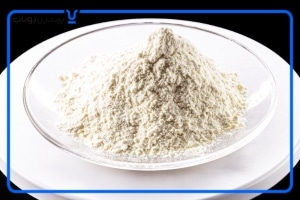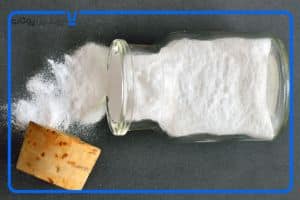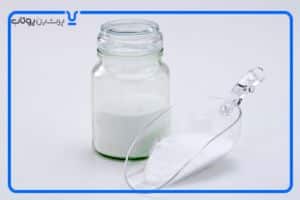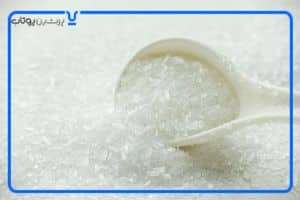سديم سيترات با چه موادی تداخل دارد؟
سديم سيترات با چه موادی تداخل دارد؟ ، را مورد بررسی قرار می دهیم. سدیم سیترات در پزشکی کاربرد های فراوانی دارد. از جمله برای اسیدی شدن ادرار و جلوگیری از تشکیل سنگ کلیه استفاده می شود. همچنین به عنوان یک ماده بافر کننده و خنثی کننده اسید معده، مفید است. این دارو با برخی از داروها تداخلات دارویی دارد، قبل از پرداختن به داروهایی که با این ماده تداخل دارند، بهتر است با اصطلاح تداخل دارویی آشنا شویم. امروزه فرصت های زیادی برای یادگیری در مورد سلامتی و مراقبت از خود وجود دارد. همچنین دانستن داروهای مصرفی شما بیش از هر زمان دیگری مهم است. اگر چندین داروی مختلف مصرف می کنید، به بیش از یک پزشک مراجعه می کنید یا شرایط سلامتی خاصی دارید، شما و پزشکانتان باید از تمام داروهای مصرفی خود آگاهی داشته باشید. انجام این کار به شما کمک می کند تا از مشکلات احتمالی مانند تداخلات دارویی جلوگیری کنید. تداخلات دارویی ممکن است داروی شما را کم اثر کند، باعث عوارض جانبی غیرمنتظره شود یا اثر داروی خاصی را افزایش دهد. برخی از تداخلات دارویی حتی می تواند برای شما مضر باشد. خواندن برچسب هربار استفاده از داروی بدون نسخه یا نسخه پزشک و صرف وقت برای یادگیری تداخلات دارویی ممکن است برای سلامتی شما حیاتی باشد. با کمی دانش و عقل سلیم می توانید خطر تداخلات دارویی و عوارض جانبی بالقوه مضر را کاهش دهید. سدیم سیترات با سایر داروها تعاملات مختلفی نشان می دهد. بستگی به نوع دارو این تداخلات شدید، جدی یا متوسط است.
تعاملات شدید سدیم سیترات
برخی از داروها به هیچ عنوان نباید با سیترات سدیم مصرف شوند، زیرا باعث تعاملات شدید می شوند.
تعاملات جدی
این داروها ممکن است تداخل داشته باشند و اثرات بسیار مضر ایجاد کنند.
تعاملات متوسط
این داروها ممکن است در صورت مصرف همزمان مقداری خطر ایجاد کنند. در مجموع 125 دارو با اسید سیتریک و سدیم سیترات تداخل دارند، که ما در ادامه نام تعدادی از آنها را ذکر کرده ایم.
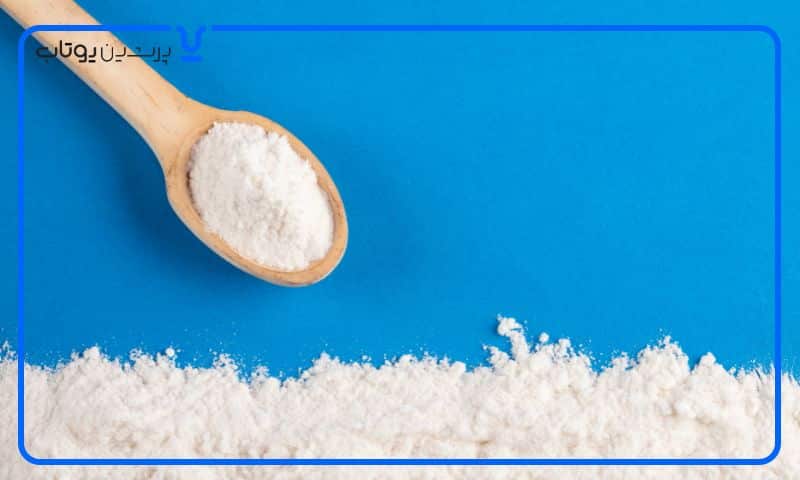
سديم سيترات با چه موادی تداخل دارد؟
سديم سيترات با چه موادی تداخل دارد؟ سدیم سیترات باعث کاهش جذب ریتوناویر، آنتی بیوتیک هایی مانند سیپروفلوکساسین ( CIPRO )، موکسی فلوکساسین ( Avelox )، داکسی سایکلین ( Vibramycin )، تتراسایکلین (Tetracon) و ضد قارچ هایی مانند کتوکونازول ( Nizoral ) و ایتراکونازول ( Sporanox ) می شود. آنتی اسیدهایی که حاوی آلومینیوم یا سدیم هستند، می توانند با اسید سیتریک و سدیم سیترات تداخل ایجاد کنند و باعث عدم تعادل جدی الکترولیت یا سمیت آلومینیوم شوند. آبسیکسیماب(Abciximab)، استیلوفناك، آسنوکومارول، الکلوفناک، آلدسلوکین، آلمتوزوماب، هنگامی که با سدیم سیترات ترکیب می شوند، شدت خونریزی را افزایش می دهند. استوفنازین، ممکن است فعالیت های عصبی سدیم سیترات را افزایش دهد. اسید استیل سالیسیلیک، ممکن است فعالیت های ضد انعقادی سدیم سیترات را افزایش دهد. آلبوترپنوناکوگ آلفا، وقتی در ترکیب با سدیم سیترات استفاده می شود، می توان اثر درمانی آلبوترپنوناکوگ آلفا را کاهش دهد. داروهای زیر می توانند با سدیم سیترات تداخل داشته باشند. اگر از هر یک از این موارد استفاده می کنید به پزشک خود بگویید: لیتیوم، متنامین(Methenamine) ، کینیدین(Quinidex)، سالیسیلات ها مانند آسپرین، داروهای سرماخوردگی یا آلرژی ( ضد احتقان)، قرص های رژیم غذایی، داروهای ADHD( بیش فعالی)، ویتامین ها، مکمل معدنی یا داروهایی که حاوی کلسیم است. این لیست کامل نیست و ممکن است داروهای دیگری نیز وجود داشته باشد که می توانند با اسید سیتریک و سدیم سیترات تداخل داشته باشند. در مورد تمام داروهای تجویز شده و بدون نسخه پزشک، ویتامین ها، مواد معدنی، محصولات گیاهی و داروهای تجویز شده توسط سایر پزشکان به پزشک خود بگویید. بدون اطلاع پزشک خود، داروی جدید را شروع نکنید پس کاربردهای تری سدیم سیترات را هم بعدا با هم مرور خواهیم کرد.
قبل از استفاده از داروی سدیم سیترات این موارد را در نظر داشته باشید:
آلرژی
اگر تا به حال واکنش غیرمعمول یا آلرژیک به داروی سدیم سیترات داشته اید، به پزشک خود بگویید.
کودکان
اگرچه اطلاعات خاصی در مورد استفاده از سدیم سیترات در کودکان با وجود ندارد، اما انتظار نمی رود این دارو عوارض جانبی یا مشکلات متفاوتی را در کودکان نسبت به بزرگسالان ایجاد کنند.
سالمندی
بسیاری از داروها به طور خاص برای افراد سالمند نیست. در مورد خطر سدیم سیترات برای سالمندان نیز گزارشی وجود ندارد، اما باید احتیاط شود.
بارداری
مطالعات در مورد اثرات سدیم سیترات در بارداری در انسان یا حیوان انجام نشده است.
شیر دهی
اگرچه مشخص نیست که آیا سیترات ها به شیر مادر منتقل می شوند، اما گزارش نشده است که این دارو باعث ایجاد مشکل در نوزادان شیرده می شود.
برای بیمارانی که فرم قرص سدیم سیترات را مصرف می کنند:
- قرص ها را کامل ببلعید. قرص را خرد نکنید، نجوید و نکشید.
- با یک لیوان پر آب همراه آن بنوشید.
- اگر در بلعیدن قرص ها مشکلی دارید یا به نظر می رسد قرص ها در گلو شما می چسبند، بلافاصله با پزشک خود مشورت کنید. اگر این دارو کاملا بلعیده نشود و به درستی حل نشود، می تواند باعث تحریک شدید شود.
برای بیمارانی که فرم مایع این دارو را مصرف می کنند:
با یک لیوان پر آب (6 اونس) آب آن را رقیق کرده و بنوشید. در صورت تمایل با آب اضافی همراه آن بنوشید.
برای داشتن طعم بهتر این دارو را قبل از مصرف آن خنک کنید، اما منجمد نکنید.
برای بیمارانی که از بلورهای این دارو استفاده می کنند:
محتوای یک بسته را حداقل به 6 اونس آب خنک یا آب میوه اضافه کنید.
خوب هم بزنید تا مطمئن شوید بلورها کاملاً حل شده اند.
تمام مخلوط را بنوشید تا مطمئن شوید دوز صحیح مصرف می کنید.
هر دوز را بلافاصله بعد از غذا یا ظرف 30 دقیقه بعد از غذا یا میان وعده مصرف کنید. این به شما در جلوگیری از درد معده یا اثر ملین کمک می کند. حداقل یک لیوان پر (8 اونس) آب یا مایعات دیگر (به جز شیر) در طول روز هر ساعت (حدود 3 لیتر در روز) بنوشید، مگر اینکه توسط پزشک شما دستور دیگری داده شده باشد. این باعث افزایش جریان ادرار و جلوگیری از سنگ کلیه می شود. این دارو را فقط طبق دستور پزشک مصرف کنید. مقادیر بیشتری از آن را مصرف نکنید و آن را برای مدت طولانی تری از دستور پزشک مصرف نکنید. این مورد به ویژه اگر از داروی ادرار آور (قرص آب) یا دیجیتال برای قلب خود استفاده می کنید، بسیار مهم است.

